| Ha Tinh: People refuel without getting VAT invoices, who benefits? An Giang : "Hired director" arrested for issuing 27 fake VAT invoices |
Openly advertised for sale on... the internet
Many social media platforms are showing advertisements for buying and selling value-added tax (VAT) invoices with different limits, prices, and percentages.
Specifically, on social networks Facebook and Zalo, there are a series of public groups for buying and selling invoices with tens of thousands of members. The group for buying and selling invoices on Facebook has 78,000 members and 6 posts for selling fake invoices every day. The group for buying and selling electronic VAT invoices has 17,000 members.
According to a representative of an import-export enterprise, currently, many cases (small businesses) have "lost money and suffered" when trusting those who buy and sell invoices online.
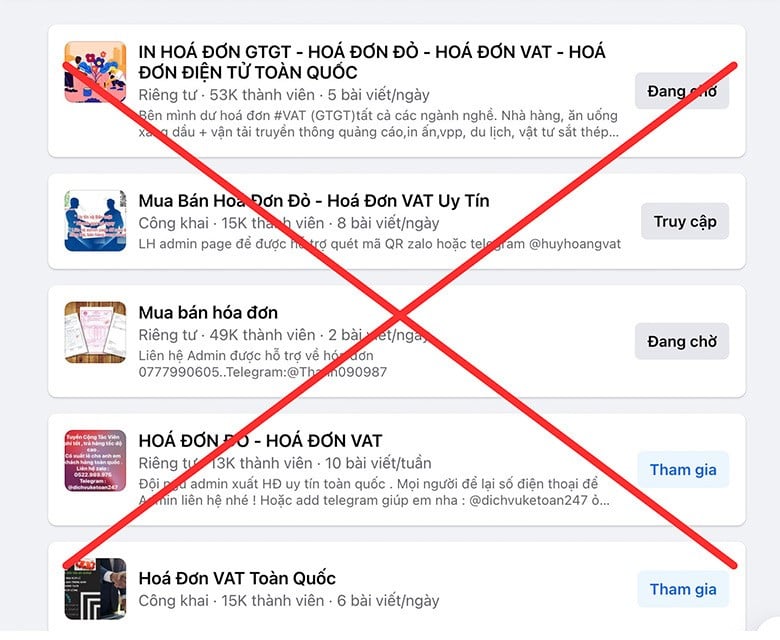 |
| Many groups on social networks openly offer invoice buying and selling services. |
For example, many businesses exporting agricultural products, purchasing scrap, operating in the construction sector, etc. purchase goods from small-scale direct producers or purchase on a small scale from collection points without invoices, then look for invoices to buy.
Due to lack of understanding of tax policies, these businesses believe that invoices are needed to justify purchased goods, so they look for electronic invoices on social networks, not knowing that, in such cases, only a list of purchased goods is needed.
In particular, through the cases of illegal electronic invoice trading investigated and prosecuted by the police recently in provinces and cities such as Phu Tho, Hai Phong , Quang Ninh, Ninh Binh..., the General Department of Taxation found that the tricks of enterprises are extremely sophisticated, aiming to evade corporate income tax or profiteering, causing budget losses...
From a legal perspective, speaking with Cong Thuong Newspaper, lawyer Tran Xuan Tien, Head of Dong Doi Law Office ( Hanoi Bar Association) said that according to current law, a value added tax invoice (VAT) is an important type of invoice and document to record information on goods and services provided to the buyer in accordance with the law.
VAT invoices are also the basis for determining the amount of VAT that businesses must pay, helping the State monitor the implementation of tax obligations of businesses. However, currently, with the purpose of deducting input VAT, reducing tax obligations, and legalizing floating goods, many businesses have illegally bought and sold invoices. This behavior not only causes loss to the state budget but also affects the healthy investment and business environment.
According to the provisions of Point c Clause 3 Article 2 Joint Circular 10/2013/TTLT-BTP-BCA-TANDTC-VKSNDTC-BTC, the act of illegally buying and selling invoices and documents for payment to the state budget includes the following acts:
Buying and selling invoices with incomplete or inaccurate contents according to regulations;
Buying and selling invoices with contents, but without accompanying goods or services;
Buying and selling fake invoices, invoices that are not yet valid, invoices that have expired, invoices of other business and service establishments to legalize purchased goods and services or provide them to customers when selling goods and services;
Purchase, sale, use of invoices with differences in value of goods and services between copies of the invoice.
Thus, any individual or organization that commits the above acts of buying and selling invoices and documents is violating the law and depending on the nature, level and consequences of the act, the violating individual or organization may be subject to administrative sanctions or criminal prosecution.
Regarding the act of illegally buying, selling, or using invoices and documents: Regarding administrative sanctions, individuals who give away or sell unissued printed invoices or sell printed invoices of customers who order printed invoices to other organizations or individuals may be fined from VND 15,000,000 to VND 45,000,000, based on Clause 1, Article 22 of Decree 125/ND-CP.
 |
| Lawyer Tran Xuan Tien, Head of Dong Doi Law Office (Hanoi Bar Association) |
In addition to the above cases, violators may be fined from VND 20,000,000 to VND 50,000,000 according to the provisions of Clause 2, Article 1 of Decree 102/2021/ND-CP amending and supplementing a number of articles of Decree 125/2020/ND-CP. In addition, violators must also take remedial measures such as forcing the cancellation of invoices for the acts specified in this Article, and forcing the return of illegal profits obtained from committing administrative violations in this Article, pursuant to Clause 3 of this Article.
In addition, according to the provisions of Clause 5, Article 5 of Decree No. 125/2020/ND-CP on principles of handling administrative violations, for the same administrative violation regarding invoices, the fine for an organization is twice the fine for an individual, except for the fine for false declaration leading to a shortage of tax payable or an increase in the amount of tax exempted, reduced, or refunded; tax evasion; administrative violations regarding taxes for commercial banks and tax payment guarantors.
Regarding criminal handling, individuals and legal entities that illegally buy and sell invoices and documents for state budget collection in blank form from 50 to under 100 numbers or invoices and documents with content from 10 to under 30 numbers or illegally profit from 30,000,000 VND to under 100,000,000 VND may be prosecuted for the crime of illegally printing, issuing, buying and selling invoices and documents for state budget collection according to the provisions of Article 203 of the 2015 Penal Code, amended and supplemented in 2017.
Accordingly, in case an individual commits a crime, he/she may be fined from 50,000,000 VND to 200,000,000 VND, sentenced to non-custodial reform for up to 03 years or imprisoned for a minimum of 06 months to 03 years and a maximum of up to 05 years. In addition, the violator may also be fined from 10,000,000 VND to 50,000,000 VND, banned from holding a position, practicing a profession or doing certain jobs from 01 year to 05 years.
In case a commercial legal entity violates, it may be fined from VND 100,000,000 to VND 500,000,000, and up to VND 1,000,000,000 if it falls into one of the cases specified in Points a, b, d, dd, e and g, Clause 2, Article 203 of the Penal Code 2015, amended and supplemented in 2017.
In addition, a commercial legal entity may also have its operations permanently suspended if it commits a crime under the provisions of Article 79 of the 2015 Penal Code (amended in 2017) and be fined from VND 50,000,000 to VND 200,000,000, banned from doing business, banned from operating in certain fields from 01 to 03 years or banned from raising capital from 01 to 03 years.
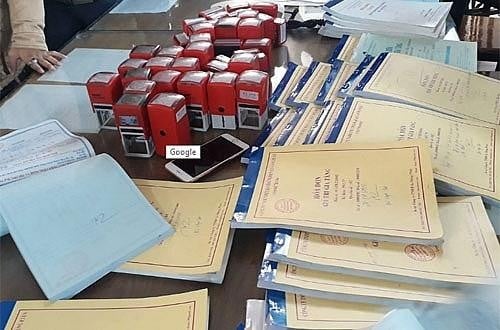 |
| Many cases of invoice trading have been cracked down by the authorities. |
Tax evasion must be strictly dealt with.
Regarding tax evasion: Individuals and organizations that violate may also be subject to administrative and criminal sanctions if there are signs of tax evasion. Specifically, according to the provisions of the 2019 Tax Administration Law, the act of " Using illegal invoices and documents, illegally using invoices to account for goods... " is considered an act of tax evasion.
According to Article 17 of Decree 125/2020/ND-CP, people who evade taxes will be fined up to 3 times the amount of tax evaded depending on the level and will be subject to remedial measures.
A person who commits tax evasion may be prosecuted under the provisions of Article 200 of the current Penal Code. Accordingly, an individual who commits one of the acts in Clause 1, Article 200 of tax evasion with an amount of VND 100,000,000 or more, depending on the severity, will be fined from VND 100,000,000 to VND 4,500,000,000 or imprisoned for a minimum of 03 months and a maximum of up to 07 years.
In addition, this person may also be fined from VND 20,000,000 to VND 100,000,000, banned from holding positions, practicing a profession or doing certain jobs from 01 to 05 years or have part or all of his/her assets confiscated.
In case a commercial legal entity violates, it will be fined from 300,000,000 VND to 10,000,000,000 VND or, depending on the severity, will have its operations suspended for a minimum period of 06 months to 03 years, and the most severe is permanent suspension of operations according to Clause 5, Article 200 of the Penal Code.
In addition, commercial legal entities may also be fined from VND 50,000,000 to VND 200,000,000, banned from doing business, banned from operating in certain fields or banned from raising capital from 01 to 03 years.
Lawyer Tien recommends that, in order to prevent this behavior, the authorities need to strengthen control and quality supervision, ensure maximum strictness in the system operation process; upgrade and perfect the electronic invoice system, especially focusing on invoice verification applications; continue to supplement and fully exploit tools and applications for warning, data analysis, retrieval, and detection of cases with signs of high risks regarding invoices.
Organize periodic and high-frequency inspections to identify signs of violations, promptly detect, resolutely combat and prevent acts of buying, selling, using fake invoices and documents; using illegal invoices and documents; tax fraud and tax evasion.
In addition, it is necessary to strictly handle violations and intentional violations according to the right authority; receive and resolve denunciations and reports of crimes, transfer and recommend prosecution of cases with signs of economic crimes and negative acts to competent state agencies for handling according to the law.
Besides, businesses need to understand the true nature of VAT, because many business owners still mistakenly think that VAT is the responsibility of the business to pay.
Meanwhile, VAT is the tax paid by consumers/buying businesses to the budget through the selling business and shown on the financial invoices of the selling business. Corporate income tax is the real tax of the business that needs to be guaranteed by a complete, tight, logical, appropriate system of invoices, documents, accounting books, financial reports, and tax settlement reports, and must always ensure "accountability" if you want to be safe and optimal.
Source link



![[Photo] National Assembly Chairman Tran Thanh Man attends the VinFuture 2025 Award Ceremony](/_next/image?url=https%3A%2F%2Fvphoto.vietnam.vn%2Fthumb%2F1200x675%2Fvietnam%2Fresource%2FIMAGE%2F2025%2F12%2F05%2F1764951162416_2628509768338816493-6995-jpg.webp&w=3840&q=75)
![[Photo] 60th Anniversary of the Founding of the Vietnam Association of Photographic Artists](/_next/image?url=https%3A%2F%2Fvphoto.vietnam.vn%2Fthumb%2F1200x675%2Fvietnam%2Fresource%2FIMAGE%2F2025%2F12%2F05%2F1764935864512_a1-bnd-0841-9740-jpg.webp&w=3840&q=75)







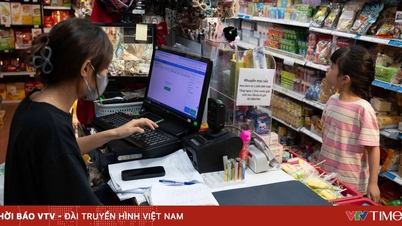

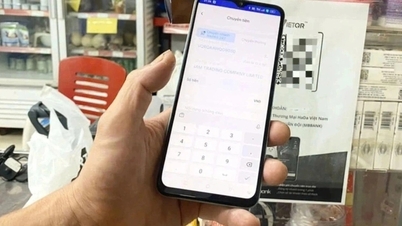






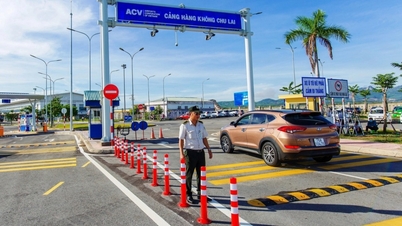


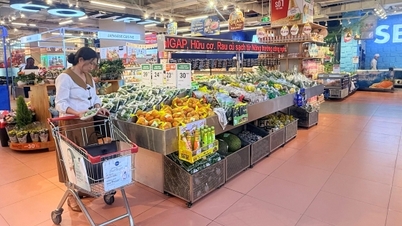


































































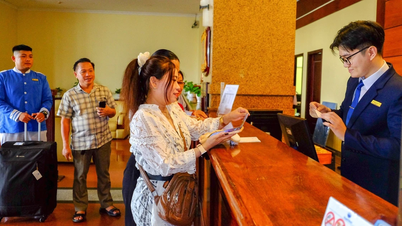




















Comment (0)